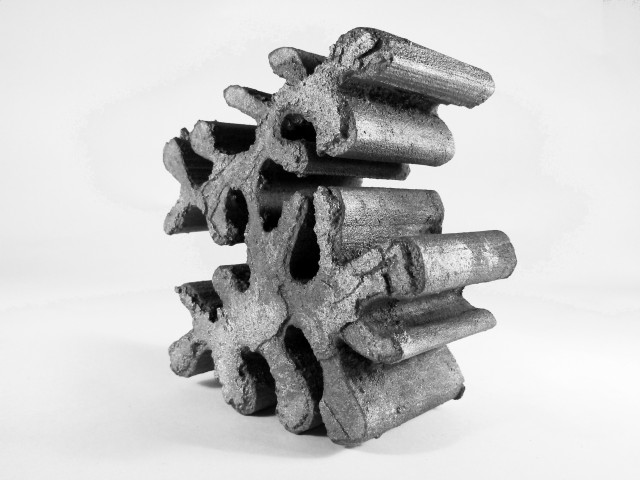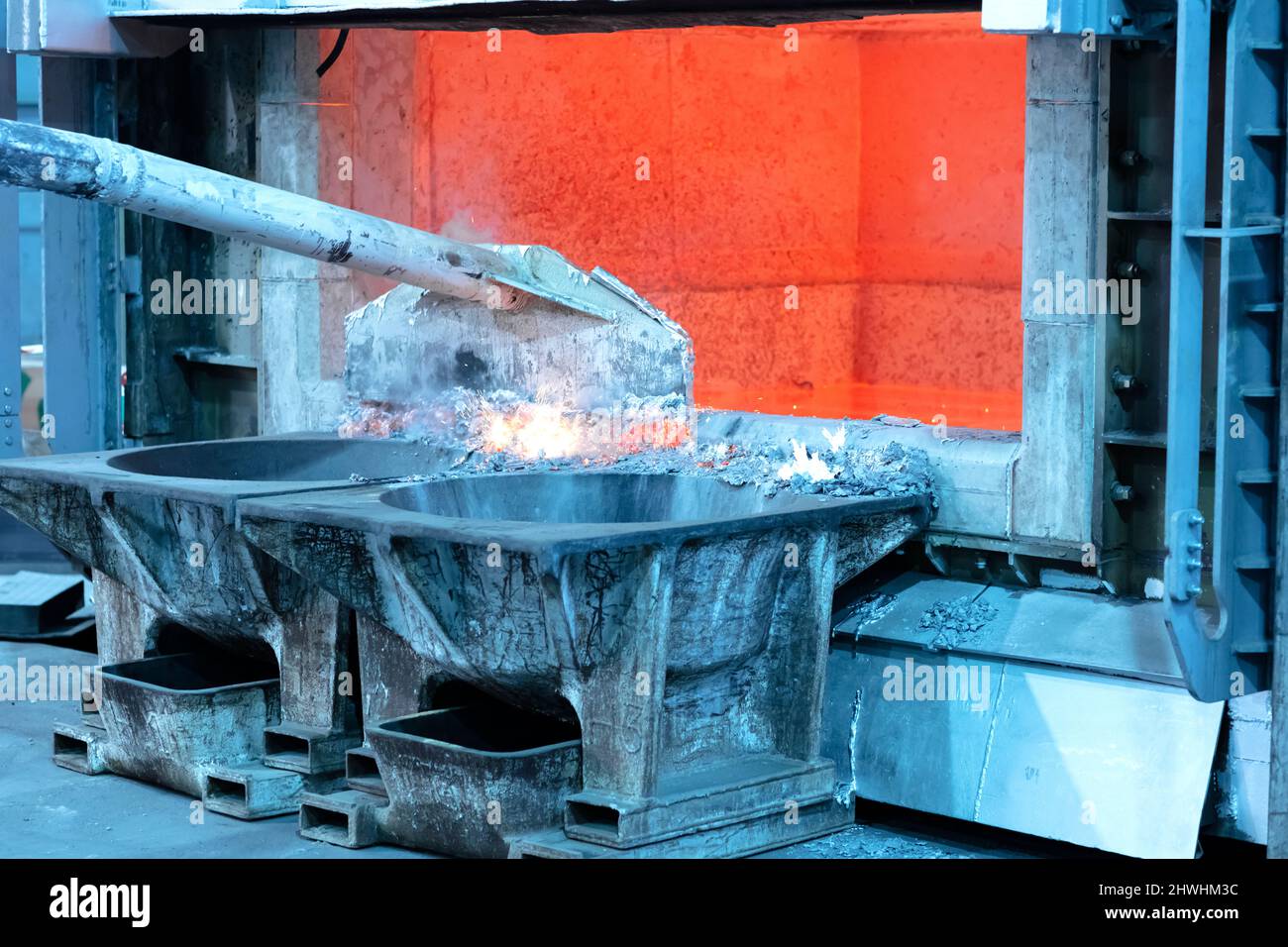Aluminum Foundry Wisconsin supports consistent casting services
Exactly How Aluminum Foundry Adds To Developments in Aerospace Engineering
Aluminum shops are integral to developments in aerospace design. They produce light-weight, high-strength elements that are essential for modern airplane. Via innovative casting techniques, these factories create complex geometries that boost structural honesty. Additionally, the development of superior Aluminum alloys supports the market's focus on fuel effectiveness and sustainability. Obstacles continue to be in the manufacturing process. Recognizing these aspects reveals the extensive effect of Aluminum on aviation's future.
The Relevance of Lightweight Materials in Aerospace Style
As the aerospace industry continues to develop, the value of lightweight products ends up being progressively obvious. The demand for performance and sustainability drives designers to prioritize using products that decrease total weight without jeopardizing architectural stability. Lightweight products, specifically Aluminum, play a crucial duty in boosting fuel effectiveness, improving haul ability, and raising the general performance of airplane.
Furthermore, the assimilation of these products permits for ingenious layouts, making it possible for producers to develop even more aerodynamic forms that can withstand extreme conditions. The reduction in weight not only lowers functional expenses however additionally contributes to a decreased environmental footprint, lining up with international efforts towards sustainability in aviation.
Advanced Spreading Techniques in Aluminum Foundries
Advanced casting strategies in Aluminum factories play a crucial function in aerospace design by making it possible for the manufacturing of exact and light-weight components. Technologies in mold and mildew layout and accuracy casting procedures are crucial in accomplishing excellent performance and architectural stability. Furthermore, the advancement of light-weight alloys boosts the total performance and performance of aerospace applications.
Cutting-edge Mold Style
Ingenious mold design plays a necessary function in the effectiveness and performance of Aluminum foundries, especially within the aerospace field. By leveraging sophisticated products and strategies, modern-day mold and mildews can be crafted to endure heats and stress, making certain peak efficiency throughout the casting procedure. These designs often include complex geometries that permit for the production of lightweight yet structurally sound parts, important for aerospace applications. Additionally, the usage of computer-aided style (CAD) software application helps with specific modeling, enabling factories to replicate and refine mold styles before physical production starts. This not just boosts the quality of cast parts however additionally reduces waste and preparation, causing significant expense savings. Overall, ingenious mold and mildew style is a keystone of progression in Aluminum Foundry modern technology for aerospace engineering.
Precision Casting Processes
The performance of cutting-edge mold and mildew designs seamlessly incorporates with precision spreading processes, which are vital for generating high-quality Aluminum parts in aerospace engineering. These procedures, including sand casting, die casting, and investment spreading, ensure the development of complex geometries with tight tolerances. Advanced techniques like vacuum cleaner casting and stress die casting improve the honesty and surface coating of the end products. Accuracy spreading reduces product waste while optimizing the mechanical buildings of Aluminum, critical for aerospace applications. On top of that, employing real-time monitoring and advanced simulation tools throughout the casting process permits immediate changes, resulting in improved high quality control. Collectively, these accuracy casting procedures placement Aluminum foundries at the forefront of aerospace innovation, sustaining the industry's need for dependability and efficiency.
Lightweight Alloy Development
As aerospace designers look for to enhance gas performance and efficiency, lightweight alloy advancement ends up being an important emphasis in Aluminum shops. These shops use innovative casting methods to develop alloys that supply premium strength-to-weight proportions. Innovations in alloy composition, including the consolidation of components like lithium and magnesium, enable the production of products that endure extreme conditions while reducing total aircraft weight. Strategies such as die casting and investment casting help with the precision production of complex forms, which are critical for aerospace applications. Furthermore, continuous research intends to enhance these alloys for improved mechanical homes and raised toughness. By prioritizing lightweight alloy advancement, Aluminum factories greatly add to the evolution of aerospace engineering, leading the way for more reliable and sustainable airplane styles.

Enhancing Structural Honesty Via Aluminum Elements
Aluminum components offer significant benefits in boosting structural stability within aerospace design. Their lightweight nature contributes to overall performance while preserving stamina, which is crucial for aircraft performance. Furthermore, the anxiety resistance homes of Aluminum assistance guarantee the toughness and reliability of aerospace frameworks under various operational conditions.
Lightweight Material Benefits
While traditional materials frequently endanger weight for toughness, making use of Aluminum components in aerospace design provides considerable advantages in architectural honesty. Aluminum's lightweight nature adds to general layout performance, permitting even more streamlined aircraft that consume less fuel, therefore enhancing sustainability. The material's superb strength-to-weight proportion warranties that elements keep toughness without adding unneeded mass. This quality cultivates improved performance and agility in flight, along with optimized haul abilities. Furthermore, Aluminum's resistance to corrosion extends the lifespan of aerospace frameworks, decreasing upkeep prices and boosting safety. As manufacturers significantly embrace Aluminum alloys, the aerospace industry experiences a transformative shift in the direction of more effective and efficient engineering services that prioritize both performance and environmental duty.
Stress Resistance Qualities
Although different products possess one-of-a-kind properties, Aluminum's extraordinary anxiety resistance stands apart as an essential consider enhancing the structural stability of aerospace components. This resistance plays a vital duty in guaranteeing that aircraft can stand up to numerous operational anxieties, consisting of tiredness, impact, and ecological conditions. Aluminum alloys, specifically engineered for aerospace applications, display high tensile toughness while preserving light-weight characteristics, making it possible for engineers to create more efficient frameworks - Aluminum Foundry. Furthermore, the ability of Aluminum to endure cyclic loading without substantial deformation adds to the longevity and reliability of aerospace components. As developments continue in Aluminum Foundry methods, the advancement of stress-resistant Aluminum elements guarantees further enhancements in performance, security, and effectiveness across the aerospace market, strengthening Aluminum's duty as a preferred product in modern engineering
Fuel Performance Improvements Driven by Aluminum Innovations
As the aerospace sector looks for to improve gas effectiveness, cutting-edge uses Aluminum have emerged as a necessary remedy. Aluminum's light-weight nature especially lowers airplane weight, allowing for reduced fuel usage throughout flight. This decrease in weight is essential, as also tiny declines can cause substantial enhancements in general gas economic situation.
Advanced Aluminum alloys, designed for enhanced strength and resilience, make it possible for suppliers to develop elements that preserve structural integrity while reducing mass - Aluminum Foundry. In addition, the assimilation of Aluminum in airframes and engine parts facilitates enhanced aerodynamics, adding to minimized drag and raised performance
The adoption of Aluminum in here are the findings aerospace not just satisfies the demand for fuel-efficient layout but likewise straightens with governing pressures for reduced discharges. As these advancements continue to develop, they play a significant duty in setting new standards for fuel performance, making sure that the aerospace sector can fulfill expanding environmental and financial challenges.

The Function of Aluminum in Sustainable Aeronautics Practices
The increasing emphasis on sustainable aeronautics techniques has placed Aluminum as an essential material in the quest for greener airplane layout. Known for its light-weight residential properties, Aluminum considerably minimizes airplane weight, causing reduced gas usage and discharges. Its recyclability further enhances its sustainability account, as Aluminum can be reused forever without loss of top quality. This particular sustains a round economic situation within the aeronautics field, decreasing waste and resource depletion.
Developments in Aluminum alloys have actually enhanced their toughness and deterioration resistance, allowing for longer service life and minimized upkeep requirements. These technologies facilitate the development of more reliable aircraft frameworks, adding to general sustainability efforts. Additionally, Aluminum's thermal conductivity plays an important role in energy-efficient designs, boosting systems such as warm exchangers. Jointly, these attributes emphasize Aluminum's essential role ahead of time sustainable aeronautics, lining up with global initiatives aimed at reducing the environmental influence of flight.
Challenges Dealt With by Aluminum Foundries in Aerospace Production
While Aluminum foundries play an important duty in aerospace manufacturing, they face considerable challenges that can affect production effectiveness and quality. One significant obstacle is the strict quality control requirements required in the aerospace sector. Any type of issue can endanger security and efficiency, requiring strenuous examination procedures that extend production timelines. In addition, shops often emulate fluctuating raw product costs, which can affect prices and this link profitability. The complexity of Aluminum alloys utilized in aerospace applications more complicates the manufacturing procedure, as accurate formulas are vital for achieving preferred mechanical homes. In addition, proficient labor scarcities hinder the capability to maintain premium production levels. Ecological policies impose constraints on emissions and waste management, requiring foundries to invest in lasting techniques, which can be cost-prohibitive. These elements jointly develop a landscape where Aluminum factories must continuously adjust to fulfill the developing needs of aerospace manufacturing while guaranteeing safety and conformity.
Future Patterns in Aluminum Applications for Aerospace Engineering
With developments in technology and raising needs for efficiency, the future of Aluminum applications in aerospace design is positioned for considerable makeover. The combination of ingenious Aluminum alloys and compounds is anticipated to boost strength-to-weight ratios, leading to more fuel-efficient aircraft designs. In enhancement, improvements in additive manufacturing methods will enable the production of complex Aluminum frameworks that were formerly difficult, optimizing efficiency and lowering waste.

Lasting practices will certainly play an essential role, with an expanding focus on reusing Aluminum to reduce ecological impact. The aerospace market is likely to welcome smarter producing processes, such as automation and fabricated intelligence, guaranteeing greater high quality and accuracy in Aluminum parts. Furthermore, partnerships in between Aluminum shops and aerospace companies will cultivate research study and growth, leading the way for new applications that fulfill the strict needs of modern-day aerospace design - Aluminum Foundry. In general, the future looks guaranteeing for Aluminum's function in forming the skies
Frequently Asked Inquiries
What Are the Ecological Influences of Aluminum Manufacturing in Aerospace?
The ecological impacts of Aluminum production in aerospace include significant power usage, greenhouse gas discharges, and habitat disruption. Additionally, mining processes can lead to soil destruction and water contamination, raising concerns concerning sustainability and ecological equilibrium.
Exactly How Does Aluminum Compare to Various Other Materials in Aerospace Applications?
Aluminum provides an one-of-a-kind combination of lightweight homes, deterioration resistance, and cost-effectiveness contrasted to various other products. Its high strength-to-weight ratio makes it especially useful for aerospace applications, boosting gas effectiveness and overall efficiency in aircraft layout.
What Certifications Do Aluminum Foundry Workers Demand for Aerospace Projects?
Aluminum Foundry employees need specialized training in metallurgy and spreading techniques, together with knowledge of aerospace sector requirements. Accreditations in quality assurance and security methods are likewise necessary to guarantee conformity with strict aerospace task demands.
Are There Any Safety And Security Interest In Using Aluminum in Aerospace Design?
Security issues concerning Aluminum in aerospace design include vulnerability to corrosion, tiredness, and stress cracks. Correct treatment and alloy selection are necessary to minimize these risks, making certain architectural integrity and general safety in aerospace applications.
Exactly How Does Aluminum Recycling Advantage the Aerospace Market?
Aluminum recycling significantly benefits the aerospace sector by lowering product costs, lessening ecological impact, and conserving energy. This lasting practice boosts the industry's performance while advertising using lightweight, high-performance parts in aircraft manufacturing.
Advanced casting i loved this strategies in Aluminum foundries play a critical role in aerospace engineering by making it possible for the production of specific and light-weight parts. Cutting-edge mold design plays a necessary duty in the performance and performance of Aluminum foundries, especially within the aerospace sector. As aerospace engineers look for to enhance fuel efficiency and performance, light-weight alloy growth comes to be an essential focus in Aluminum foundries. Aluminum alloys, specifically engineered for aerospace applications, show high tensile strength while preserving lightweight characteristics, allowing designers to create more effective structures. Collaborations in between Aluminum shops and aerospace business will cultivate research study and advancement, leading the means for brand-new applications that satisfy the rigid requirements of modern aerospace design.